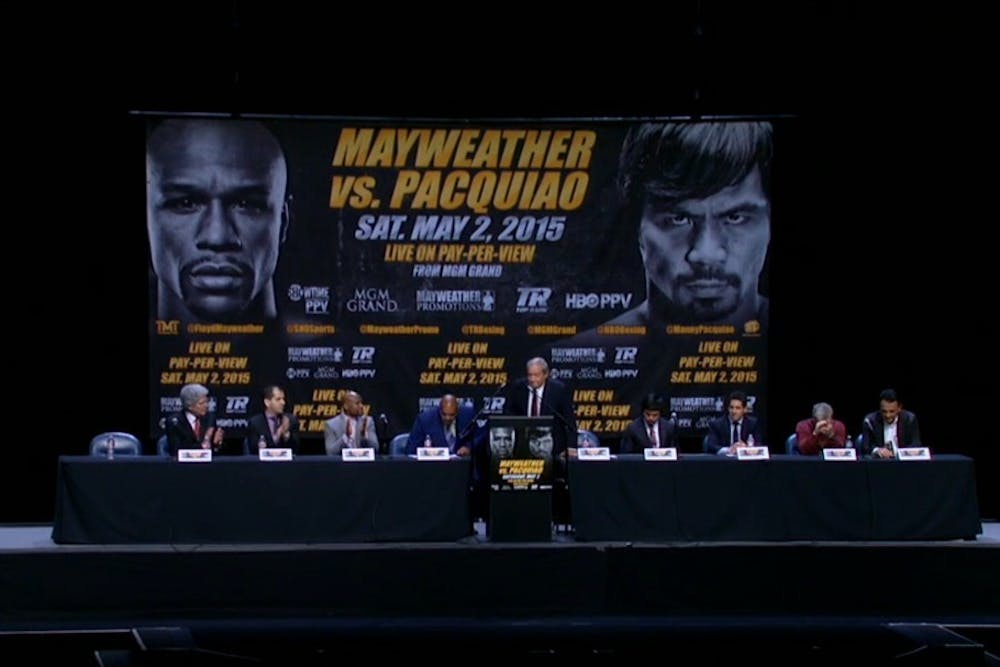Rinard's Rundown
By Jordan Rinard, Senior Staff Writer
Few sporting events in recent memory can compare to that which transpired Saturday night in the MGM Grand in Las Vegas.
Floyd Mayweather and Manny Pacquiao finally met in a boxing ring in what can only be described as a generation-defining moment for the sport. It was defining not only because the two top pound-for-pound boxers competed against each other, but also because of financials for the fighters, their respective promotions and the city of Las Vegas.
The fight is easily the most lucrative in history. Hotel rooms in Vegas were booked at exorbitantly high prices, ranging from $379 to $1,600 a night. The expected ticket gate was $72 million, as prices for seats ranged from $1,500 to $10,000. Even the secondary ticket market had the highest average ticket price of any sporting event in history. Three hundred tickets were sold for an average upwards of $6,000 through Sunday night on StubHub.
And there is the fight itself, in which Mayweather agreed to split the $250 million fight purse 60-40 with Pacquiao. Mayweather planned to take home $150 million, while Pacquiao would take $100 million, regardless of the outcome. Not bad for 36 minutes of work.
Then we have the revenues generated through pay-per-view, which will be prolific for the event when it's finally tallied in the weeks to come. At a cost of $99.95, the fight was projected to make $300 million in PPV sales as well as $15 million in closed circuit (public places such as sport bars buying the PPV) sales. Sponsorship for the match also exceeded the precedent. With $13.2 million being spent, the deal with Tecate beer alone accounts for $5.6 million. Beer deals for previous fights were in the $4 million range.
However, this might be the last great hurrah for boxing PPVs as the sport looks to make its return to network television and basic cable. This would be a smart move on boxing's part, as it can capitalize on the renewed interest in the sport as a result of Mayweather-Pacquiao. It can also get away from the PPV model, as it is the only sport product to utilize the model.
Even the WWE, which has utilized PPV sales for decades, has recently moved away from the PPV model in favor of the WWE Network, a service akin to Netflix with its a-la-carte programming and capacity to stream live events.
The sport must consider that it won't see a superfight like Mayweather-Pacquiao in the near future, so moving to cable TV would be huge in developing boxers' brands with the audience. The current lack of familiarity with the other top fighters in the world among casual fans has hurt the sport. Some portion of the blame can fall to PPVs because some fans won't shell out hard-earned dollars for unknown quantities.
Perhaps boxing should consider transitioning to a service like the network and offer subscriptions to original content and internally produced events. If this is not possible, the sport should make its long-awaited return to TV, reminiscent of an era where boxers were kings, and fights were can't-miss events.




